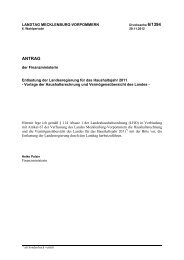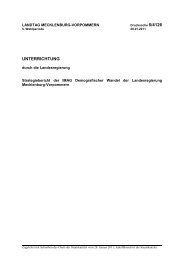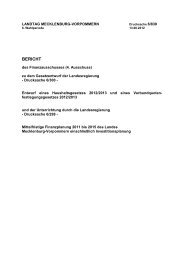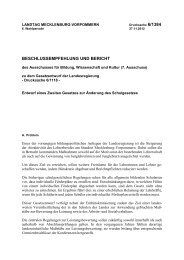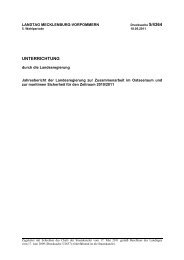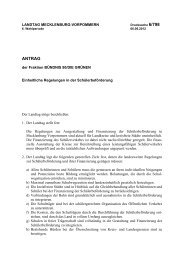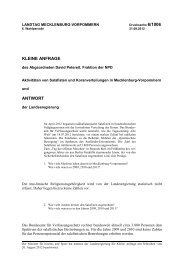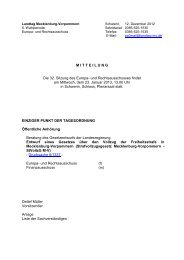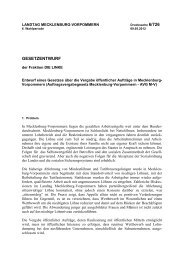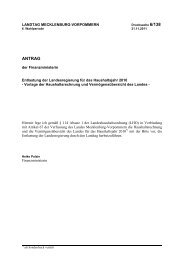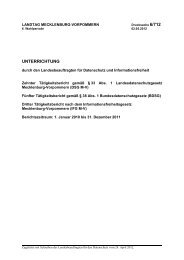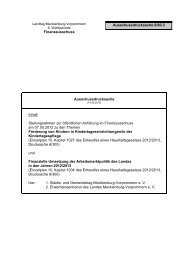Baltic Rim Economies - Baltic Port List
Baltic Rim Economies - Baltic Port List
Baltic Rim Economies - Baltic Port List
Create successful ePaper yourself
Turn your PDF publications into a flip-book with our unique Google optimized e-Paper software.
Expert article 901 <strong>Baltic</strong> <strong>Rim</strong> <strong>Economies</strong>, 21.12.2011 Quarterly Review 5�2011<br />
Russia – facing new challenges on the world gas markets<br />
By Nodari Simoniya<br />
During last several years we are witnessing very dramatic<br />
developments and drastic changes on the world gas markets.<br />
Russia (in fact “Gasprom”) was not prepared to adequately<br />
respond to these challenges. The more so, that in recent years in<br />
the West it became fashionable to speak about a threat of Russian<br />
energy monopoly for Europe that in future might allegedly lead to<br />
political dependence. These statements are constantly<br />
disseminated by almost all Western mass media sources with the<br />
latter naturally not taking any trouble to present in the least bit<br />
serious analysis of real state of affairs.<br />
It’s quite enough, however, to address facts and statistical data<br />
to receive evidence that in decades following the time when<br />
historical “gas in exchange for pipes” agreements with Austria and<br />
Germany were signed, in spite of absolute physical increase of gas<br />
deliveries from the Soviet Union, its share in total volume of<br />
European gas import decreased more than twice. It happened<br />
naturally due to diversification of import sources (from Norway with<br />
Algeria as well as other North African countries, plus Qatar,<br />
Trinidad and Tobago, etc.). What monopoly are we talking about?<br />
And, nevertheless, “Gasprom” is a monopolist, but only in its<br />
own country. At its complete disposal the company has all the<br />
main export gas pipelines thanks to which it “makes miserable” the<br />
life of all the independent gas producers in Russia either imposing<br />
crushing terms of gas purchase, or forcing them to burn associated<br />
gas in flares, polluting the atmosphere. The history, however, has<br />
evidence that any monopoly sooner or later comes to an end. And<br />
such a monopoly usually breaks in its “weak link”. Until recently<br />
“Gasprom’s” life was comfortable. It was “sitting” on “Soviet<br />
inheritance” and kept to the comfortable tracks beaten in earlier<br />
times. But when it became necessary to develop new deposits<br />
“Gasprom’s” “weak link” became apparent – Arctic with its multiple<br />
challenges: severe climate, need for absolutely new innovation<br />
technology, its unknown off-shore, etc. The monopoly’s leadership<br />
was neither psychologically, nor professionally ready to meet these<br />
challenges quickly, dynamically and widely.<br />
More than this, “Gasprom’s” leadership was permanently<br />
ignoring the fact that the Government had long ago formulated the<br />
concept of state-private partnership (SPP) where the state’s role<br />
was in formulation of ideas and large national projects, in partial<br />
investment in the latter (especially in various infrastructure<br />
spheres), etc., while the role of business was that of operational<br />
initiative, realization of information technologies and the role of<br />
main investor. In the past “Gasprom” has clearly demonstrated its<br />
inability, and even reluctance to give up its comfortable existence<br />
and fit into this SPP concept, having balanced its purely<br />
corporative interests with national goals. All this could not pass by<br />
V.Putin’s attention. Just as the fact that he practically had to<br />
display initiative himself in realization of actually all the largest<br />
energy projects applying the method of “manual management” (as<br />
if Russia is Singapore). Discontent accumulated. Finally, premier<br />
Putin has decided to apply “shock therapy” for “Gasprom” in LNG<br />
projects sphere, having created for the latter an active competitor<br />
represented by “Novatek”.<br />
Perhaps, it is necessary to stress that all the steps made by<br />
the Government and V.Putin personally are in no way aimed at<br />
destruction of “Gasprom” as a large corporation. It would have<br />
been extremely unreasonable and damageable for the whole<br />
economy. But they are efficiently aimed against negative aspects<br />
of “Gasprom’s” monopolism, which in recent years have turned into<br />
the main brake on almost all the large energy projects of Russia,<br />
and turned for “Gasprom” itself into hindering factor of its own<br />
development. V.Putin as chairman of the Committee of Foreign<br />
Investments in every way possible contributed to growth and<br />
organizational strengthening of private “Novatek”. More than that,<br />
the Government’s criticism of “Gasprom” is becoming more and<br />
more open and directly threatening monopolist status of this<br />
company. In early February of 2011 V.Putin at a meeting in<br />
St.Petersburg in 2010 on the results of fuel and energy complex<br />
directly declared that the Government of Russian Federation may<br />
be ready for changes in the legislation if “Gasprom” – Russian<br />
60<br />
monopolist in gas transportation via main pipelines – did not allow<br />
independent gas producers access to its transportation capacities.<br />
“Either you work more efficiently, or we shall be forced to change<br />
the existing rules, to change the legislation”, - said the premier at<br />
this meeting, having stressed that “the company puts its own<br />
interests above the interests of the industry’s development”.<br />
“Novatek” in its turn not waste any minute and immediately<br />
started formation of his grand LNG production center on the Yamal<br />
peninsula. The leadership of the company intends according it’s<br />
2015-2017 plan to more than double capitalization of their<br />
company (up to US$100 bln.) and bring natural gas extraction up<br />
to 60-80 billion cubic meters, and that of gas condensate – to 8<br />
mln. tons. (In 2010 Novotek’s production was 37,2 bcm of gas and<br />
26 million barrels of condensate. Their big achievement was that in<br />
the meantime practically opened through navigation along the<br />
Northern Sea Route: August 14, 2010 tanker “Baltika” with<br />
experimental consignment of gas condensate (70 000 tons)<br />
freighted by “Novatek” from Sovcomflot (state shipping company)<br />
left Murmansk in Russia’s extreme northwest and went to the Asia-<br />
Pacific region across the Arctic Ocean’s Northern Sea Route. This<br />
consignment for China National Offshore Oil Company arrived at<br />
the Chinese port of Ningbo on 6 September. Business Monitor<br />
International consultancy commented upon this event as follows:<br />
“Novatek” can reduce its normal journey to Asia of around 20,400<br />
km around the Suez Canal to around 12,500 km, allowing for<br />
significant reduction in transit time, fuel cost, and the risk of pirate<br />
attacks. President of “Novatek” L. Mikhelson who was on board of<br />
“Rossia” tanker during the whole route told “Vedomosty” reporter<br />
that delivery of condensate via Suez Channel at that time would<br />
have cost “Novatek” US$ 50 per ton, i.e. approximately US$3.5<br />
mln. for the whole consignment, while delivery along NSR cost half<br />
a million dollars less.<br />
Finally I would like to briefly formulate the main conclusions<br />
made from the above:<br />
1. Russian Arctic zone is not only the key base for development<br />
of oil and gas industry, but also a “weak link” where in the last<br />
3-4 years began and have been building up important shifts in<br />
the very model of this sector.<br />
2. The most significant shifts are: the breakthrough of monopoly<br />
of some state oil and gas monopolies on home market and<br />
appearance of real competition.<br />
3. It became obvious that fast and effective development of<br />
Russian fuel and energy complex is simply impossible without<br />
the closest international cooperation both with statesconsumers<br />
of Russian hydrocarbons and advanced oil and gas<br />
corporations and service world companies. Any pretension on<br />
independent development of Arctic resources leads only to<br />
lengthy procrastinations and rise in cost of large energy<br />
projects.<br />
4. At the same time the process of renewal of Russia’s oil and<br />
gas industry will take several years, as the scale of the tasks it<br />
faces is enormous, while the obstacles necessary to overcome<br />
are too rooted in general economic structure of Russian<br />
society (the principal ones are double-dyed bureaucracy,<br />
pervasive corruption and still inevitable due to the<br />
management’s low level of professionalism method of “hand<br />
management”).<br />
Nodari Simoniya<br />
Full member of Russian<br />
Academy of Sciences<br />
Russia<br />
� Pan-European Institute � To receive a free copy please register at www.tse.fi/pei �



